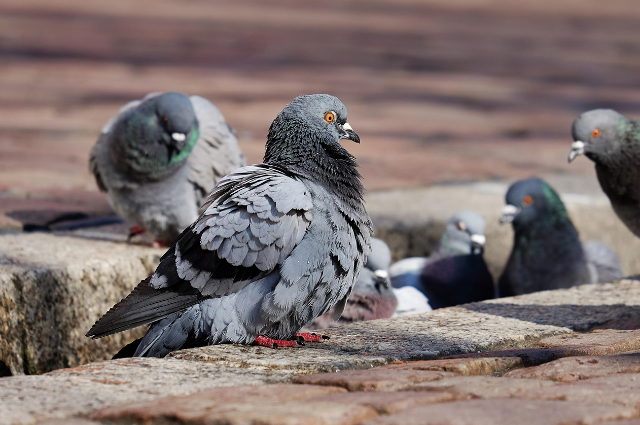
Kabootar bazi, the flutter of wings on rooftops, the sight of children smiling as pigeons circle overhead—is a familiar scene in many old Indian mohallas. Pigeon keeping, or kabootar bazi, is far more than a pastime. For many, it is an emotional inheritance, a badge of pride, and a connection to their roots.
But here lies the paradox: the very birds that bring joy, nostalgia, and prestige are also linked to allergies, respiratory issues, and infections. Doctors warn against the risks, yet pigeon lovers passionately defend their tradition. Why does kabootar bazi prevail over reason and medical advice? Let’s explore the drama, devotion, and reality that reveal the unshakable power of passion.
Kabootar Bazi’s Core: Pride, Tradition, and Pure Joy
For someone who has raised kabootars for years, the answer is always emotional. “Hamare daddu ne shuru kiya tha” (“My grandfather started it”), many proudly declare. Others recall evenings spent on terraces, waiting for their prized pigeon to return first. For them, pigeon keeping is about connection—not just with birds, but with family and community.
In many families, kabootar bazi is ancestral. It represents communal pride—children admire the “kabootar master,” elders reminisce about legendary races, and newcomers dream of winning their first competition.
A friend from Purani Dilli once shared how families gathered on rooftops during winter mornings just to watch flocks soar. “Us waqt sab kuch bhool jaate hain… asmaan aur kabootar hi sab kuch lagte hain.” (“In that moment, we forget everything—the sky and pigeons are all that matter.”) For many, winning a kabootar race is not just about skill—it’s about proving something to oneself and one’s mohalla.
The Hidden Health Hazards
Doctors, however, see the other side. They encounter families dealing with allergies, breathing problems, and infections linked to pigeons.
- Allergic Reactions: Feathers and droppings mix with dust, triggering sneezing, runny noses, asthma, and chronic bronchitis. Long-term exposure may even cause Pigeon Breeder’s Lung.
- Infections: Pigeon droppings can carry fungal diseases like Cryptococcus and Histoplasmosis, as well as bacterial illnesses like Psittacosis, which may resemble the flu but worsen if untreated.
- High IgE Levels in Children: Studies show children living near pigeon flocks often have elevated IgE levels, a sign of allergic sensitivity. Many parents fail to link constant itchy skin, watery eyes, and coughs to pigeons.
Urban clinics near historic marketplaces frequently report such cases. Clearly, these are not isolated warnings.
Why Emotion Triumphs Over Logic
Despite the risks, pigeon lovers rarely give up. Their reasoning is rooted in deeper truths:
- Tradition over Concern: “Parampara hai yeh hamari!” (“This is our tradition!”) is a common retort. For many, kabootar keeping is a living link to grandparents and simpler times.
- Community Pride: Kabootar masters command respect, and abandoning the practice could harm family reputation.
- Emotional Attachment: Birds are treated like family members. Losing one feels like losing a friend. Criticizing kabootar bazi feels like attacking dignity, not just a hobby.
- Denial or Lack of Awareness: Many are unaware of the risks, dismissing symptoms as pollution or seasonal issues. “Mere ghar mein kabhi problem nahi hui” (“We’ve never had problems at home”) is a frequent defense.
The conflict becomes personal—between health concerns and emotional bonds.
Stories of Stubborn Love
One of my neighbors, an elderly man who had raised pigeons for decades, was advised by his doctor to give them up after repeated bouts of pneumonia. His response? Anger, denial, and sorrow—“Pigeons never harmed me.”
Such stories spark heated debates in homes, WhatsApp groups, and street-side chai stalls. For every medical warning, there are countless tales of how kabootar bazi helped heal loneliness, preserve heritage, or bring joy. Passion, once rooted in memory, always wins over reason.
Can Safety and Tradition Coexist?
Instead of choosing between passion and health, perhaps the answer lies in balance:
- Raise Awareness Tactfully – Share facts respectfully, without shaming.
- Maintain Cleanliness – Regularly clean cages and rooftops; dispose of droppings safely using gloves and masks.
- Monitor Family Health – Routine check-ups, especially for children and seniors, can catch problems early.
- Limit Flock Size – Fewer pigeons reduce risks and are easier to manage.
- Learn Together – Community seminars with doctors and elders can normalize safe practices.
- Encourage Open Sharing – Real-life stories of health struggles often speak louder than medical statistics.
The Human Truth
The debate around kabootar bazi reflects a universal truth: human beings often choose passion over practicality. Whether it’s food, festivals, or hobbies—we embrace what makes life meaningful, even at a cost.
Kabootar bazi is not just about pigeons. It’s about pride, heritage, and the simple joy of watching wings cut across the sky. But to protect both tradition and health, a compassionate middle path is essential.
Next time you see kabootars circling above a mohalla, look beyond the wings. Appreciate the pride and emotional connection, but also remember the hidden risks. Tradition is precious, but true love means safeguarding ourselves, our families, and even the pigeons.
Unbreakable bonds are strongest when built not just on nostalgia, but also on care, responsibility, and wisdom
